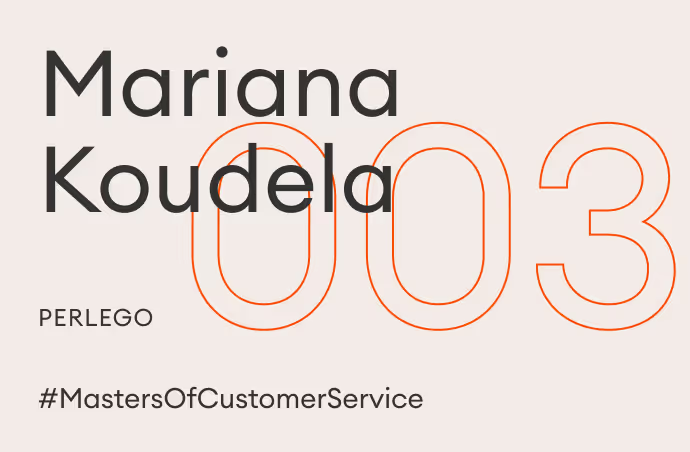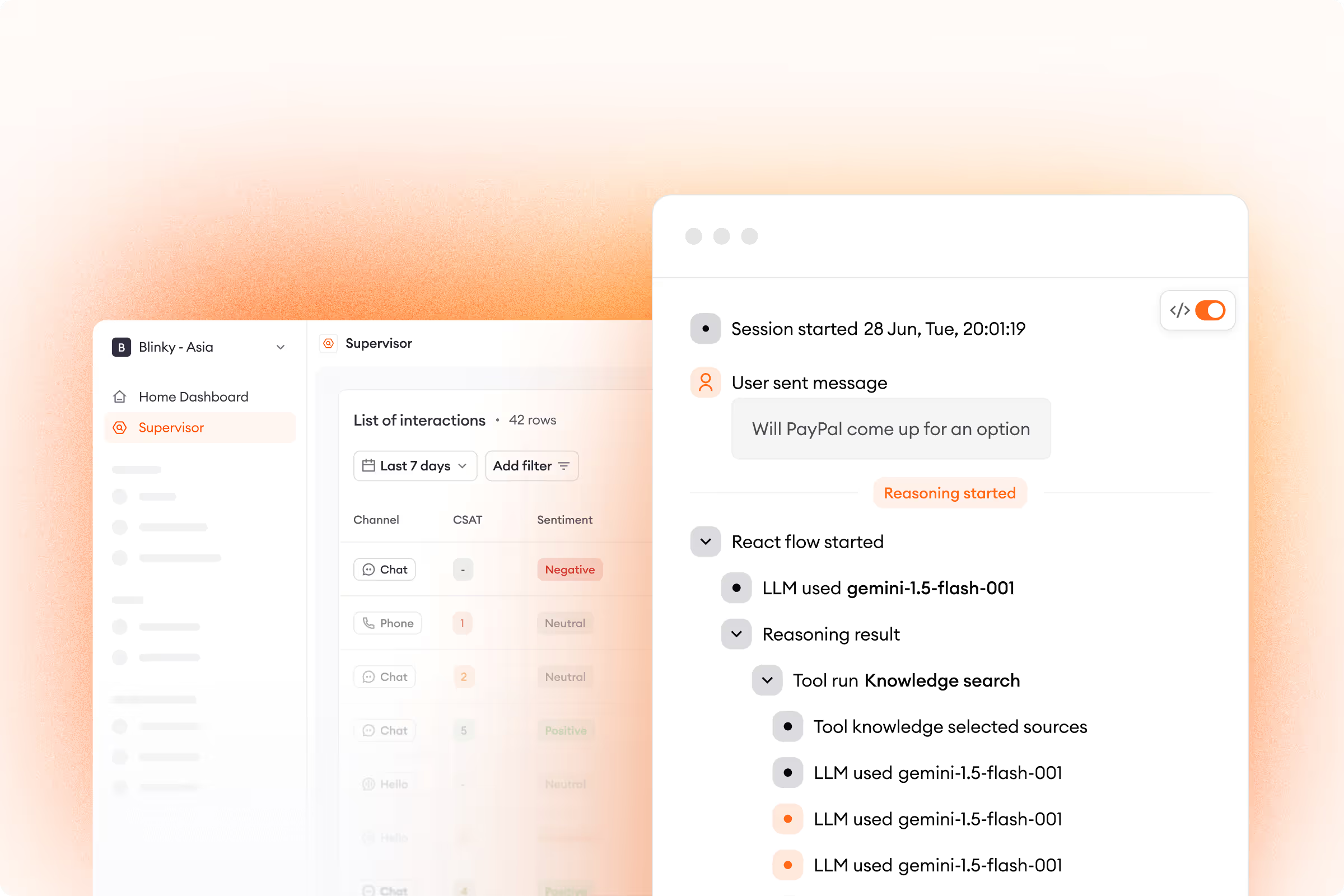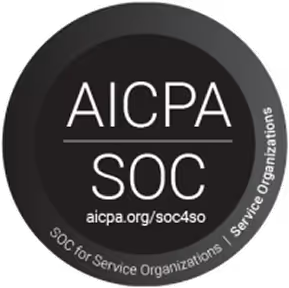They say the best way to get flawless at things is by learning from your own mistakes. We believe that it’s better to avoid failures and double down on patterns that work. If you would just have this magic knowledge…
Therefore, it is our pleasure to introduce you to our series: Masters of Customer Service. Its goal is simple: to learn from the best industry experts, as well as their experience, successes, and failures. Get to know the tools they use, patterns they follow, and the mission they have.
Today we meet with – Mariana Koudela, Head of Customer Support at Perlego.

Mariana runs customer support for Perlego, an online learning library. The platform specializes in academic textbooks, non-fiction titles, and study tools, making life easier for students. Her role is twofold - ensuring customer satisfaction and the best user experience. By talking to customers and liaising with Perlego's technical team, she achieves both.
Check out other articles in our Masters of Customer Service series! Like our interview with Alicja Heyduk: Masters of Customer Service #2: Alicja Heyduk, Infermedica
How did you make your way into the world of customer service?
It was completely by accident. I graduated last year and I was just looking for jobs. I loved the idea of working in a startup. That whole environment of having many opportunities and not being stuck in one specific role. But I did want a customer-facing role. I’ve always enjoyed working with people and I love constant engagement. Then, I found Perlego. I found that I didn’t just relate to the role, but the business itself, which was important to me. It’s an online academic library. I absolutely love reading. I loved university. So, I thought it would be an amazing company to work for because I could enjoy the role and believe in the company’s mission.
How many people are on your customer service team currently?
It’s just me!
Oh! So, you’re the whole customer service team? That’s great!
I am the whole customer service team, yeah!
Which type of customer do you talk to most often? People from corporations, medium- sized businesses, or startups?
So, Perlego has quite a large B2C base. The vast majority of users that come through customer support are students. We also have quite the B2B arm. We work with a lot of universities to offer Perlego. So, I do get inquiries from businesses. For instance, university libraries. These queries come from the librarians and administrators, but on the whole it just tends to be individuals.
How many inquiries do you get a week?
It’s a seasonal job because we get so many students. So, it depends on the school year. For instance, university started recently so I get more conversations. I might be averaging 300 a week - that’s new conversations. Whereas in the summer, it could be less than 200. In the summer, students aren’t looking for textbooks. They don’t want to read anything for university.
That’s still a lot. Has the pandemic changed anything in your work?
It’s been a quite interesting change for us. Especially at the beginning of lockdown in the UK, which was around March. Obviously, this was an entirely new situation for everyone. A lot of university libraries reacted by closing. Students had to find some way to adapt, so that’s where services like Perlego came in. We offer the university library but from home. So, we started a marketing campaign to offer extended free access to students and university libraries.
And because of the lockdown the number of weekly inquiries has increased?
Yes, it has, yes.
How do you measure customer satisfaction? What are the pros and cons of your approach?
So, we measure mostly through direct feedback. An example is in-app customer surveys. We also consistently ask for Trustpilot reviews.
There’s also indirect feedback. I work a lot on user research and try to collate as much feedback as possible.
Sometimes it’s direct. Users say, ‘I like this product,’ or ‘I don’t like this product.’ Other times, it’s teasing pieces of information from the conversation. I think I’m in quite a lucky position in that I’m constantly talking to the users. So, I always know how they’re feeling, what their pain points are, what they’re enjoying about the product. The negative consequence is that it’s just me and obviously I can be prone to biases. So, we are looking into making it a bit more structured.
Ok, thank you very much. What tools do you use in your daily work?
In my direct line of work, I use Intercom. That’s our main customer support platform. I also use Jira to log any technical issues and to liaise with the support tech team.
You mentioned that you are the whole customer service team. Do you plan your daily work in connection with other people? Or do you always work alone?
No, I’m not quite independent to that extent. I do work with the rest of the company. In particular, the tech side - developers and the content processing team. I can’t solve those issues myself. For instance, let’s say someone’s found an issue with a book. So, I would work with the content processing team to help solve that issue. I’m a liaison between the customer and tech team.
Okay, so you’re in touch with all the teams in your company.
Yes, yes constantly.
How do you start your work? Do you have a morning routine?
Yes, I find I need routine. I like to wake up around 7 am. At the moment, I’m working on a user research methods course. So, I’ll do my own learning in the morning. Then I go for a walk. I need to exercise before I start work. And when I do start work, coffee is definitely the first thing.
Yeah, definitely.
Definitely coffee. And then I’ll go through my notifications. After, I open Intercom and start going through conversations.
So, Intercom is your main channel for contacting customers, yes?
Yes.
How do you deal with stress and overwork? Because if you’re the entire customer service team, that has to be stressful. Or maybe not?
I’m quite lucky. I don’t think I’ve really had many periods of stress. Everyone’s quite understanding that I’m the only one on the customer service team. Other people will help me out if I need it during busier times. And they understand that maybe I can’t work on other aspects of my role if it’s super busy on customer support. So, it’s quite nice to have that flexibility and everyone’s really mindful of that. But in general, I try to stick to a routine. I’ll start at 9 am and finish at 6 pm. I switch off all of my notifications after work. I don’t touch anything work-related on the weekend. I think that is really important.
Yeah, I agree with you. In your opinion, what features should an excellent customer service representative have? What skills help a person stand out from the crowd? And why are these skills important?
So, I’m sure these are skills that those in customer service would have always needed:
- Enjoy Talking to People
- Love Engaging with People
- Problem Solving
- Motivation
- Creative Thinking
- Patience
- Thick Skin
Customer service is often a one-sided conversation. They have the problem, they want you to listen.
You need to have the motivation to get to the root of their issue. That’s why you need to have a lot of patience and a really thick skin. You can’t get upset.
But I think that’s an advantage. You develop that thick skin and that’s going to help you the rest of your life.
Okay, but these are all soft skills. I truly believe that you have to be born with them. For example, if you don’t like to work with people, I don’t think that you can learn that. Are there any hard skills that a customer representative should also have?
In terms of hard skills, I find that I’m learning a lot of technical skills that I wouldn’t originally have thought I would. I think it’s going to become a lot more important to branch out beyond the customer-facing role. For example, I work a lot with the technical team and help them identify user issues. If I limited myself to the real role of my job, which is talking to users and logging technical issues, things would take a lot longer to solve.
Okay, so, we are learning a lot of new stuff every day. Is there any book or podcast that you would recommend? If yes, why?
So, I haven’t actually started this book yet, but it’s been recommended to me. It’s called The Mom Test. It’s about customer support and user research. It’s about asking the right questions to ensure that you get the most valuable insight from your customers. So, if you’re interested in what customers think about your product, you don’t ask, ‘Do you like the product?’ They might lie or tell you an answer they think you want to hear. Instead, it’s about asking different questions to tease out the most valuable information from them.
That’s interesting.
Yeah, I’m really excited to start it!
If you could hire a celebrity or a public person for your customer service team, who would that be and why?
I think it would be Philip Rosenthal. He’s a comedian. I watched him recently on Netflix, and he was just so personable and positive. It felt like nothing would ever phase him. I think that would be an amazing person to have on your customer support team. I think every day would be so much fun with someone like that!
Definitely! Do you think that it’s important to be constantly happy during conversations with customers? Do you think that people care if they’re talking with a happy person?
I think they definitely do care. If you think about human nature at its core, we want to talk to people who are also interested in us. Right? And I think you should try and convey a little bit of that. I’m not sure how easy it is to do via emails or text. And I think it’s difficult to maintain that day in and day out. But I think it’s very important that you try. Yeah, definitely.
Okay. In your opinion, what will customer support look like in 5 years?
If we’re judging things by how they’re going now in every sector, I think things are going to become a lot more automated.
But, I think we need to be careful that we don’t end up in a dystopian future where users are constantly talking to chatbots. I’m sure we’ve all been in that situation where you just want to talk to a person.
Yeah, a real person.
Exactly, yeah! So, I think it’s going to be a tough balance to strike between wanting to automate things so you have less work and can focus on other things, and ensuring that you deliver the best possible customer experience.
Do you have any specific goal for the year? If yes, what is it?
Well, the year is almost over, so for the next year I have a few different goals. We want to work on automation. Right now, the customer support team is just me. And we want to scale because the company is growing quite quickly. So, it’s important that our customer support platform can do that as well. And we’ll scale through automation and improving our customer knowledge base. A lot of users still want to solve their own problems. So, there’s that two-pronged approach. Then the human is left for those interactions that need the human touch to be solved. Another thing that’s really important to me, is centering the user in the design process itself. So, bridging that gap between customer support, what I do, and product. I think that’s really important because we’re building this product for users. We need to build something that they’ll love. And we can only do that by talking to them. So, I’m quite keen on bridging that gap.
Want to hear from our other masters of customer service? Check out our interview with Jakub Zawadzki: Masters of Customer Service #1: Jakub Zawadzki, DocPlanner
.avif)

.avif)
.svg)







